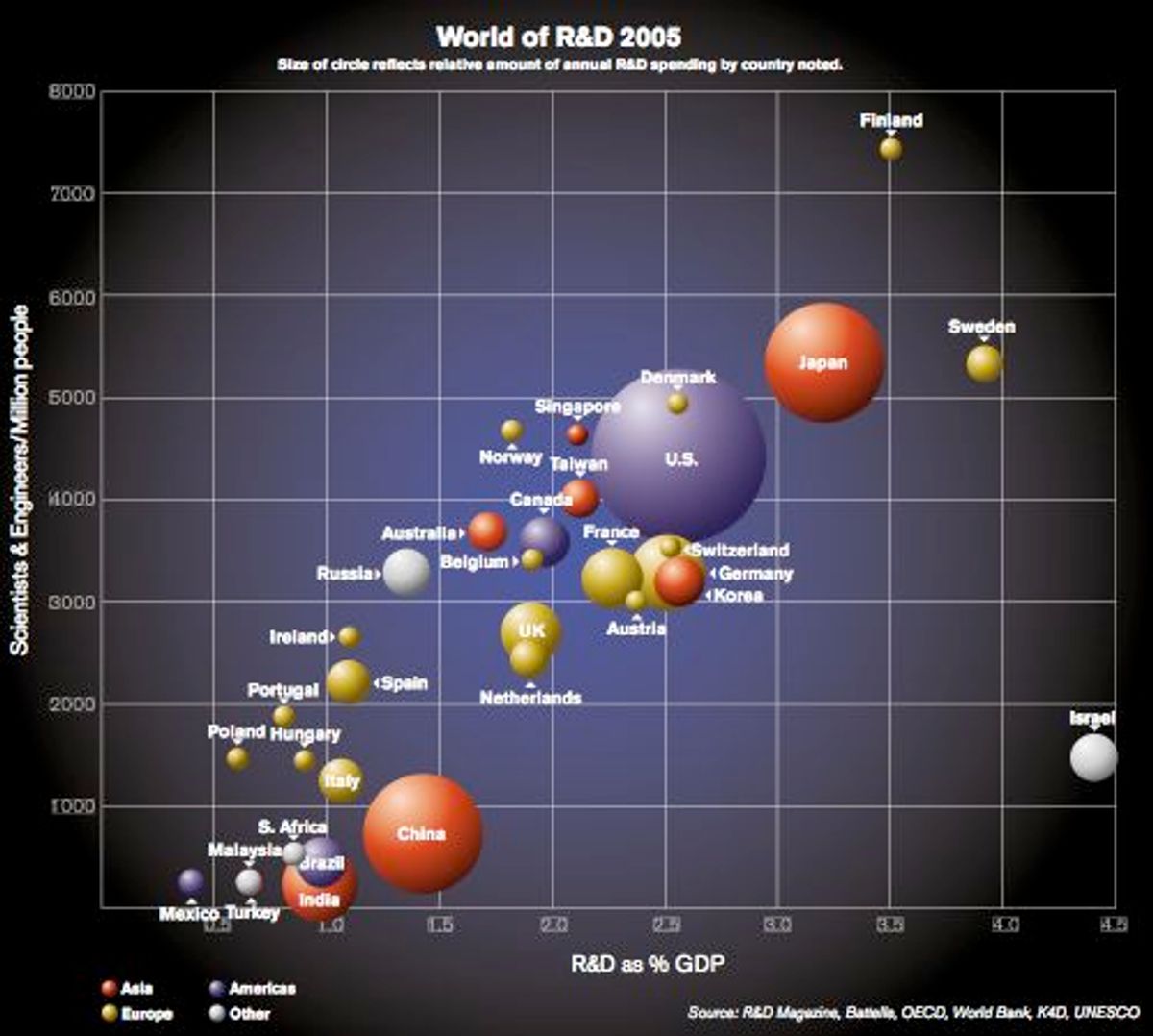While cutting-edge research grabs the nanotechnology headlines and a good deal of the focus, much of the groundbreaking bit never finds its way into commercial products.
Sure, research papers always contain a tag promising to revolutionize this or that application, but in the long run this is rarely the case. Remarkably, it turns out that technological obstacles are one of the smallest factors in preventing this kind of research from finding its way into commercial products.
As tired as it may sound, one of the key issues remains the funding gap.
When it comes to the most groundbreaking nanotech research, it’s typically start-ups that lead the way. The reasons are obvious and center around the idea that they are attempting to have their technology transplant that of an established one.Of course, it’s rare that large, established companies conduct expensive research into making their own technologies obsolete. The underlying problem is that large companies have plenty of money for bringing new technologies to market but little motivation to do so, while a start-up has lots of incentive but little cash to see it realized.
I suppose all that exciting research is not a complete waste, since some big company will pick up some of it for its particular purposes, whether to augment a technology or possibly simply to keep it off the market.
In any case, one UK-based nanotech start-up has announced that it's mad as hell and it's not going to take it anymore. The Financial Times has a story this week about how Nanoco, a manufacturer of quantum dots, is threatening to move its manufacturing facilities out of the UK and to a country that is more financially supportive, namely either Japan or Singapore.
Michael Edelman, the chief executive of Nanoco, is quoted in the article as saying, “Ministers talk a good game [about trying to encourage manufacturing], but when you look at the support packages that are available, they are often unsuitable or too thinly spread.” I would tell him to move and be quick about it. Save your company, and then maybe you can worry about saving the UK manufacturing industry.
Dexter Johnson is a contributing editor at IEEE Spectrum, with a focus on nanotechnology.




